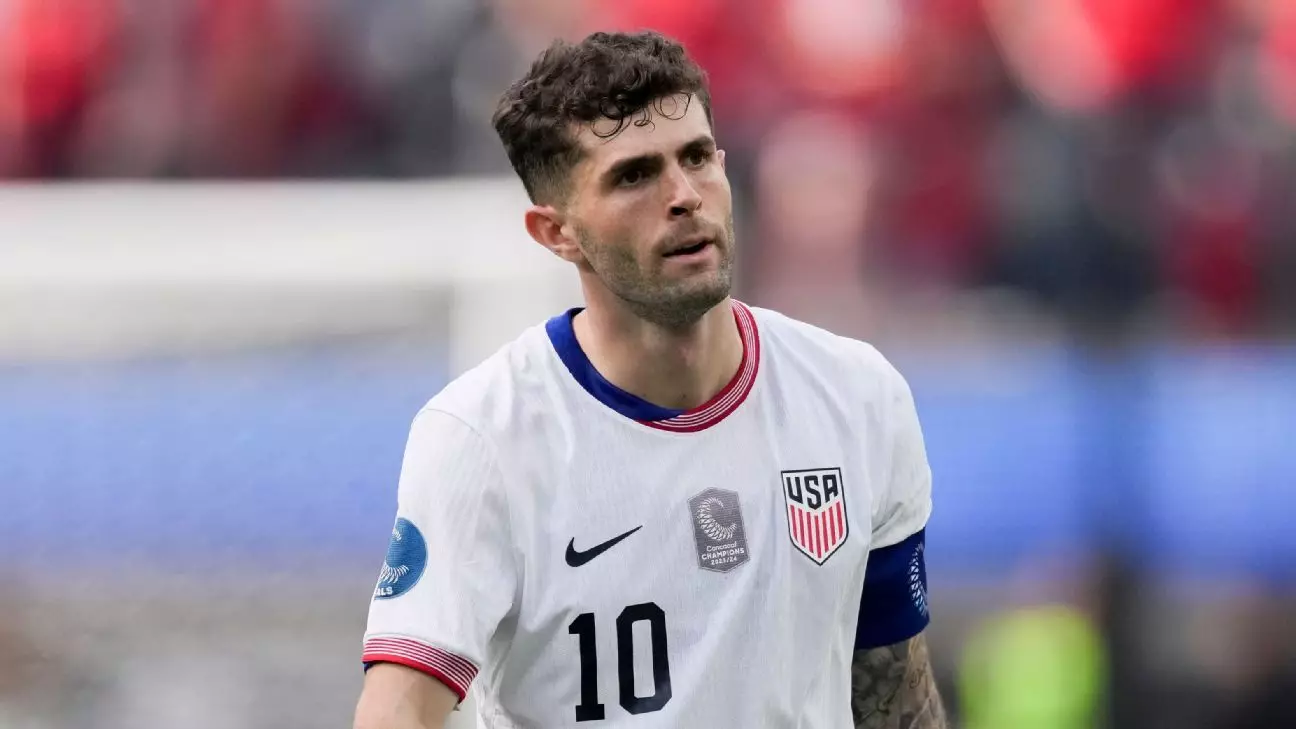In the competitive world of professional sports, the expectations placed upon athletes can be incredibly high. Recently, U.S. soccer legend Landon Donovan voiced his frustrations regarding Christian Pulisic’s choice to opt out of the Gold Cup. Pulisic is choosing to prioritize rest after an intense season with AC Milan, a decision that ignited discussion among fans and pundits alike. Donovan condemned the mentality he perceives in Pulisic and others who have chosen not to participate, suggesting that this highlights a lack of commitment to representing their country. His comments raise an important question: what does it truly mean to represent one’s country in sports?
Athletes like Pulisic often face the delicate balancing act between personal health and national pride. While Donovan’s call for commitment resonates with many who are passionate about soccer—especially with the upcoming World Cup in mind—it’s critical to acknowledge that the long grind of professional sports can take a toll on physical and mental wellbeing. Does passionate representation necessarily require jeopardizing one’s health for national honor? This is a debate well worth having.
Balancing Act: Health vs. National Responsibility
Mark Pulisic, Christian’s father, offered a different perspective to Donovan’s comments via social media. He pointed out Donovan’s own sabbatical during the 2012-2013 season, a period that resulted in his absence from the following year’s World Cup. This was not just a personal setback; it was a painful reminder that even the greatest athletes cannot escape the burdens of mental and physical exhaustion. The wisdom of embracing a breather when needed cannot be understated. Mark Pulisic’s use of AI to draw parallels between past struggles and present decisions indicates a thoughtful response to criticism. Is it possible that resting, rather than playing in every national event, could lead to a more refreshed and better-performing athlete in the long run?
The dynamics of team sports require collective synergy but are also deeply personal. Each player’s needs and circumstances should be acknowledged, and it is essential to understand that every athlete’s journey is unique. Pulisic’s decision to rest may infuriate passionate advocates of U.S. soccer, but staving off burnout for an athlete poised to take on the world’s biggest tournaments is not inherently misguided. After all, Donovan himself once required a timeout to recharge.
Social Echoes: The Power of Legacy
Landon Donovan’s influence is undeniable; he is a national treasure whose contributions to soccer in the U.S. helped lay the groundwork for the sport’s current popularity. His impassioned defense of commitment and work ethic speaks to a legacy that emphasizes the honor of wearing the national jersey. However, the question remains—does this legacy demand a one-size-fits-all approach to participation? Pulisic’s choice reflects an evolving culture within sports, where self-care is being recognized as a legitimate component of performance.
Additionally, other critics, like Alexi Lalas, have echoed Donovan’s sentiments, asserting that the team benefits from time spent playing together, particularly in preparation for major international competitions. While these arguments have merit, it’s crucial to weigh them against the potential risks associated with ignoring personal wellbeing. In a sport where injuries can abruptly annul promising careers, the argument that the team needs time together should not overshadow the importance of making sound personal choices.
Moving Forward: A New Athletes’ Mindset
Pulisic and his peers are now in a position to redefine what it means to represent the United States in soccer today. By prioritizing their health and mental state, they contribute to the discourse on athlete wellbeing—a crucial narrative that has historically been overlooked in sports. In an age where mental health is gaining deserved recognition in every aspect of life, can we afford to dismiss the significance of taking a step back?
As fans and stakeholders, we must embrace this new mindset, one that sees athletes as whole individuals with needs that extend beyond the field. Societal perceptions of commitment and representation in sports may need to evolve. Perhaps honoring the national team can coexist with a need for rest, requiring a delicate balance that respects athletes’ choices while also fostering a culture of unity and teamwork. The dialogue ignited by figures like Donovan and their challengers could very well shape the future of soccer in the U.S., illuminating a path towards a more compassionate understanding of what it truly means to contribute to a national legacy.

